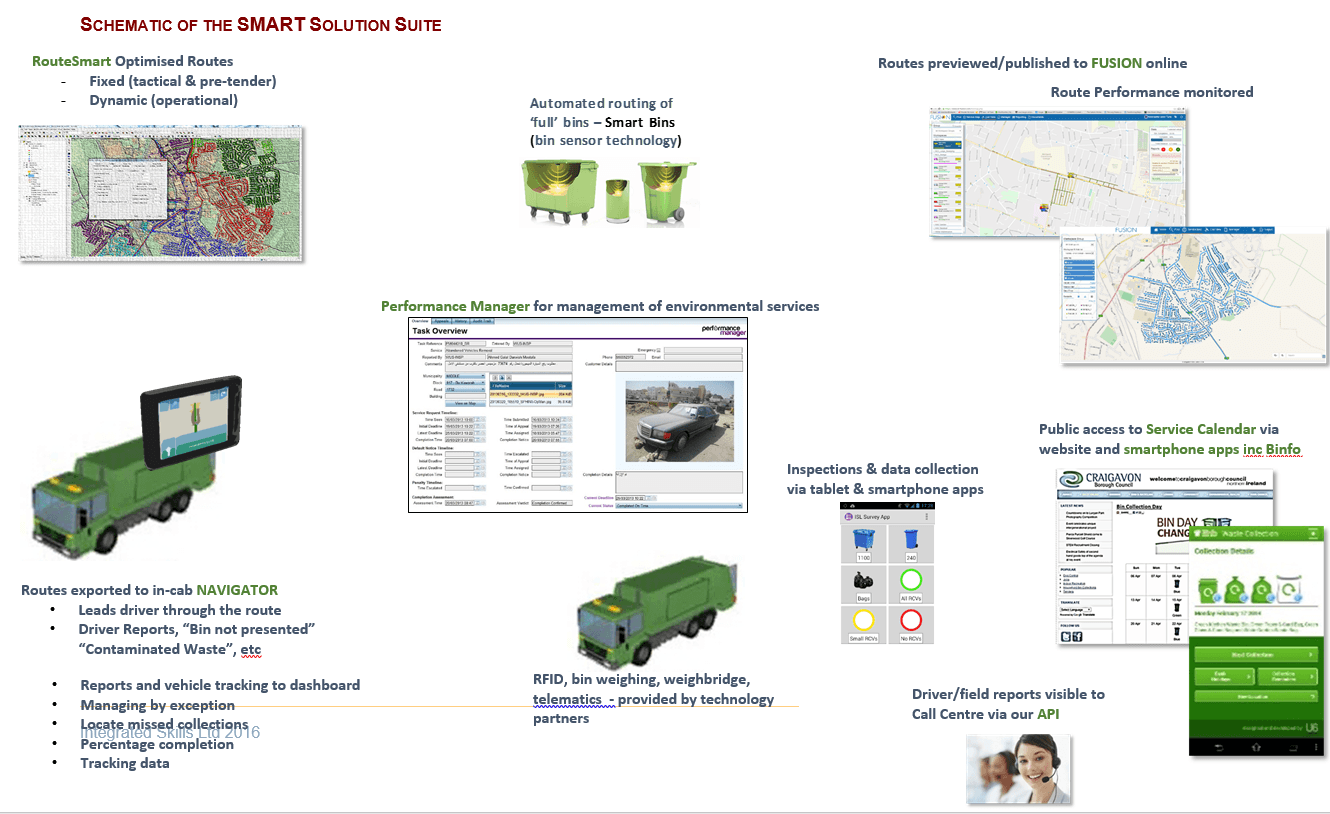Lets work together



Suite 3A, Chapel Allerton House, 114 Harrogate Road, Leeds, LS7 4NY
ukinfo@integrated-skills.com
+44 (0) 3300 888 670

It is expected that by 2050 over 80% of people in developed countries and over 60% of those in underdeveloped countries will be living in cities. In order for these cities to be able to absorb the inevitable growth in population, their resources will need to be used efficiently. There are a number of smart technologies which will allow for efficient resource use.
Infrastructure Technology
The basis of all smart city solutions is infrastructure technology, which converts information from the real world into data that can be used by computers. The ability to do this helps, for example, in the planning and design of regional and urban development in line with future demand. This technology can also be used with existing systems, an example of which would be improving data analysis of traffic patterns using data from fixed road sensors and in-vehicle satnav. This is the world of Big Data and the Internet of Things (IoT).
Energy Systems
Energy usage and control systems can significantly impact a smart city. These systems allow for more efficient management and conservation of energy, as they control and monitor the energy being used. Smart cities employing this technology can reduce energy inefficiency by 30% in under 20 years.
In addition to smart energy systems, the use of a managed water supply, waste management systems and renewable energy sources will allow smart cities to reduce their environmental impact as well as conserve energy.
Transport Tech
Considering the inevitable growth of city populations over the coming decades, more sustainable options for transport will be needed. Dynamic mobility solutions will most certainly have an impact on making a smart city. Information-gathering will be the first step to developing these solutions, identifying movement and driving patterns to find the best solutions for reducing accidents while allowing citizens to move around the city as efficiently as possible.
Smart Health
As cities grow in size, so too will their demographics begin to change. Higher numbers of ageing citizens will require new and innovative ways to access quality health care services. The latest Smart health care solutions allow for remote connectivity between patients and healthcare professionals, allowing them to provide patient specific healthcare from afar. The latest technology is enabling medical researchers to collaborate in real time across geographical borders and time zones.
Services
Smart cities allow for seamless communication between residents and municipal authorities. This is accomplished in numerous ways, with many smart cities deploying free to access Wi-Fi networks. Being able to communicate in this way enables greater citizen access to service data, such as the use of apps to manage waste container collection, as well enable then to access other services information in real time, such as public bus times or the location and availability of free to use bicycles.
Green Urban Development
With our natural resources disappearing at an alarming rate, one of the factors that will make a city smart will be solutions that aim to minimise environmental damage. These approaches reduce the output of waste and the input of resources. Examples of green urban development include the creation of more efficient buildings with smart technology, and the adoption of integrated systems engineering. Other solutions include the optimisation of green energy generation processes and distribution networks, as well as ensuring that the supply side matches demand.
The creation of smart cities can take a wide range of approaches, from complete solutions covering all functions within a city to individual projects covering only districts and buildings. Smart cities are the way of the future. To be effective, however, their framework must be broad enough for all processes to operate in. In addition, actual outputs must be monitored, both to make necessary adjustments to behaviours and seize opportunities to embrace new technologies.
With urbanisation occurring at faster rates than ever before, its effects are already wide-reaching. This presents many opportunities for collaboration to occur. Challenges will be ever-present, but when they’re handled as opportunities, all can benefit.
Would you like to know more about Smart Cities: Which Technologies Have The Greatest Impact On Making A City Smart?? Fill in your details below and let us know how we can help.
Website Designed & Built by we are CODA